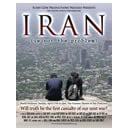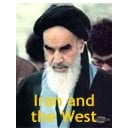
Inside Iran: What Happened to Iran's Women-led Uprising?
As the first Western film crew to set foot in Iran in months, they found themselves plunged into the heart of a simmering revolution. Mahsa Amini's death had ignited a firestorm, and the streets crackled with a volatile mix of defiance and fear. Brave whispers danced through Tehran's bazaars, carried by students risking expulsion for a glimpse of uncovered hair and echoed by a lone reformist cleric challenging the very foundations of the regime.
But Iran's iron fist remained firmly clenched. The crew's cameras, windows onto a forbidden world, attracted unwanted attention. The Vice President's carefully constructed facade crumbled under the weight of their questions, and the metallic tang of fear filled the air as men with guns snatched their equipment. A chilling silence descended on faces the moment a phone was pointed their way.
Yalda, a photojournalist bearing the scars of her relentless pursuit of truth, recounted the suffocating darkness of prison cells, a stark testament to the price of dissent in this oppressive atmosphere. And then there was Gavand, a 16-year-old echo of Mahsa's tragedy, his brief life and untimely demise a chilling reminder that the crackdown continued, relentless and merciless.
Yet, amidst the suffocating darkness, hope flickered in the defiance sprayed across school walls, in the unyielding gaze of young eyes yearning for freedom, in the clandestine conversations whispered under cloaks of darkness. The revolution, though silenced, refused to die. The regime tightened its grip, but the whispers persisted, waiting for the moment they could erupt into a roar that the world could not ignore.
Iran's story, woven with threads of heartbreak and defiance, became a stark reminder of the fragility of freedom and the enduring power of the human spirit in the face of oppression. It was a story that lingered long after the final frame, leaving the world with a heavy question: how long could these whispers survive before they erupted into a deafening demand for change?




"What happened to Iran's women led uprising"
Almost a silly question when being asked in a muslim country.
Women have no voice in Iran, in Saudi Arabia or in any other muslim country.
There are groups in the west that are fighting to create the same hellish environment for women in places where we've always been free.
Religion has no place in government and this is SO easily illustrated by a glance in the direction of the middle east and the horrific poverty that the vast majority of people experience there.
Religion is not a tool but a personal belief and can be a beautiful part of life...but when it's used as a form of controlling women or any population, the result is always revolting.
What's the belief got to do. I was born in in India. Studied in Christian institutions, when it came to work and earn I came across people with multiple religious beliefs but that never ever came in between our friendly relations. I just really miss those loving years.